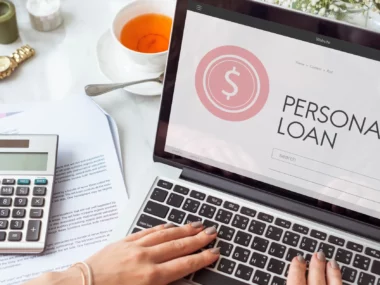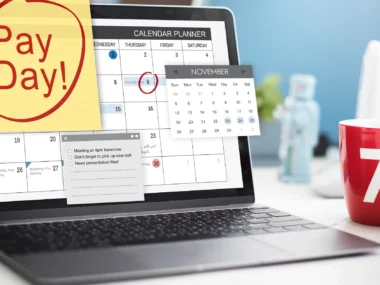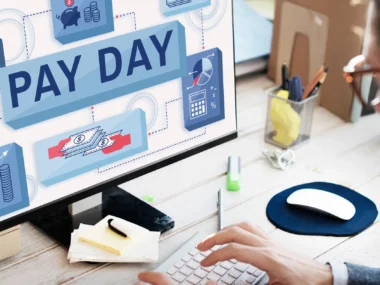Table of Contents
Top Frequently Asked Questions Before You Take A Personal Loan. Personal loans remain a wonderful financial solution to emergency bills and expenses. They are widely regarded as one of the best types of loans due to the many benefits that they offer.
One of which is the fact that they can be taken for any purpose that one desires. You can use them to cater for student debts, home renovation expenses, moving expenses, medical bills, and so on.
They usually don’t require collateral and their approval period is often short, depending on the lender.
Having a good credit score can help you secure a loan with a low-interest rate, so it is important that you maintain good credit if you wish to apply for a personal loan.
Before moving ahead with your decision to apply for a personal loan, it is important that you familiarize yourself with the details surrounding it.
To be able to do this well, See the Top Frequently Asked Questions Before you Take A Personal Loan.
See Top Frequently Asked Questions Before You Take A Personal Loan
What Is A Personal Loan?
Ranking first in Top Frequently Asked Questions Before You Take A Personal Loan is to understand what a personal loan is. Personal loans remain a wonderful financial solution to emergency bills and expenses. A personal loan is a type of unsecured loan that can be taken for a variety of purposes such as home renovations, medical expenses, or debt consolidation.
Where Can I Get A Personal Loan?
You can get a personal loan from banks, credit unions, online lenders, and private companies and individuals.
What Can I Use A Personal Loan For?
This seems to be one of the most frequently asked questions about personal loans, as borrowers are often curious about what they are allowed to take and use the loan for.
The answer is that you can use personal loans for a variety of purposes. One of the features that sets personal loans apart from other types of loans is the fact that lenders don’t usually dictate a use for them.
When you receive the funds, you can use it for different purposes including debt consolidation, large purchases, wedding expenses, medical expenses, home renovation, moving expenses, auto repairs, settlement of student debts, and so on.
How Does The Personal Loan Process Work?
The personal loan process usually involves the following steps:
1. The first step is to fill out an application and submit it with the necessary documents and information.
2. Then, provide required documents such as proof of identity, proof of resident, proof of income, e.t.c.
3. The lender then verifies the application and documents provided.
4. Once verification is successful, the lender approves the loan and specifies the loan amount, interest rate, and repayment terms.
5. The approved loan amount is sent to your bank account after you have accepted the offer.
6. You then begin to repay the loan in monthly installments over the agreed-upon duration.
How Can I Apply For A Personal Loan?
You can apply for a personal loan by using any of these methods:
1. You can apply online by visiting the lender’s website or using a loan aggregator platform.
2. You can walk into a bank or financial institution’s branch and apply in person.
3. You can also apply via mobile apps, if the lender offers such option.
What Are The Documents Required For A Personal Loan?
They include:
1. Proof of ID which can be a PAN card, a Passport, or a Voters ID card.
2. Proof of residence including utility bills, rental Agreement, and so on.
3. Proof of Income such as pay slips, bank statements, income tax returns, and so on.
4. Proof of employment including an offer letter or an appointment letter from your employer.
How Long Before My Personal Loan Application Is Approved?
Most lenders approve personal loans in a matter of days, and disburse the needed funds not long after.
Do I Need A Collateral To Get A Personal Loan?
Typically, personal loans are unsecured, that is, they don’t require you to put up your property to get them. However, in some cases, providing one might help you get a better interest rate and some other benefits. The downside of this though, is that, you risk losing your property if you are unable to repay the loan.
Do I Need A Guarantor To Get A Personal Loan?
To get a personal loan, you don’t need to provide a guarantor. The lender approves your loan based on your creditworthiness, income stability, and other eligibility criteria. The only situation where a lender would require a guarantor is if the borrower has a poor credit score or the amount requested for is high.
How Do I Check If I Qualify For A Personal Loan?
The eligibility criteria that you will need to meet to get a personal loan is usually specified by most lenders on their respective websites. Another option is to use the personal loan eligibility calculator tool, which is available on the websites of banks and financial institutions.
Is There A Maximum Amount Of Money That I Can Borrow From A Bank?
The maximum amount that you will be allowed to borrow from a bank will depend on certain factors.
One of them is that, if you are a salaried employee, your monthly payment should typically not go beyond 30% of your salary.
Another factor is any existing loans that you might be currently servicing.
Also, borrowers who are self-employed will be offered a loan amount according to the profits that they earn through their business. Their financial liabilities will also be considered.
Finally, the lender’s own terms and conditions will also determine the maximum amount that you can borrow.
Why Do I Need To Have A Good Credit Score When Applying For A Personal Loan?
One of the factors that lenders consider before approving your loan application is your credit score. A good credit score will fetch you personal loan with a low interest rate, as it indicates your creditworthiness, and signals to the lender that you are capable of repaying the loan.
Borrowers with low credit scores may be denied a loan, as it indicates their poor ability to handle their finances and settle their debts. Even if for some reason, they get approved for a personal loan, they are usually charged a high interest rate.
Therefore, if you wish to apply for a personal loan, it is best to have a credit score that is above 750.
What Is The Repayment Duration For Personal Loans?
The repayment duration set by most lenders is between 1 to 5 years.
How do I get a low monthly payment for a personal loan?
If you have a good credit score when applying for a personal loan, there is a high tendency that you will get a low monthly payment. You could also negotiate with the lender to get a more acceptable interest rate.
What Are The Things That I Should Consider When Applying For A Personal Loan?
So you don’t end up regretting taking a personal loan, here are a few things that you may want to consider before accepting one:
1. Ensure to check out the interest rate charged on the loan. Depending on the lender’s terms and conditions and your credit score, the interest rate charged for a personal loan varies from 10% to 24% per annum. The interest rate is one of the factors that will determine the total cost of the loan.
2. Ensure to confirm if the lender will let you make part-payments or pre-payments and if they charge any penalty for them.
3. Ensure there is no processing fee charged in the loan.
4. Also, ensure that the lender has great customer care channels that you can easily contact.
How Much Will I Pay In Interest For Personal Loans?
The interest rate charged on personal loans often depend on a variety of factors, including your credit score, loan amount and repayment term. Interest rates can be as low as 5.99% and as high as 29.99% or even more. Usually, lenders will give you a personal loan with a low interest rate when you have a good credit score and you select a short repayment term.
Do Personal Loans Have Fees?
While most lenders of personal loans don’t charge any fees on the loan, some of them may charge you an application or origination fee.
An application fee is charged when you apply for the loan (only if the lender charges it) while an origination fee is a one-time upfront charge that the lender deducts from your loan as the cost of administration and processing.
Can I Get A Personal Loan With A Bad Credit?
A good credit is one of the factors that will help you secure not just any personal loan but one with a low interest rate while a bad credit might hinder you from getting one at at all.
That being said, there are certain lenders who offer personal loans to borrowers with bad credit, although it might come with some not so favorable terms. The interest charged on such loans are usually high and you may have to put up your property as collateral for the loan.
Can Personal Loans Build Your Credit?
If you don’t have a credit history or you have a poor credit, personal loans can definitely help to build or improve your credit. Taking personal loans and making timely payments on them is one of the ways to build/improve your credit. However, if you take them and fail to make payments at the right time, they can do serious harm to your credit.
Is There Any Consequence To Missing A Monthly Payment?
For personal loans, if you miss a monthly payment, the lender typically charges you a late payment fee and interest on the outstanding amount. You should also keep in mind that if you miss multiple payments, it can negatively affect your credit score.
Can I Take Multiple Personal Loans Simultaneously?
Yes, you can take multiple personal loans at the same time. However, this may affect your creditworthiness and debt-to-income ratio.
What Is The Difference Between A Fixed Interest Rate And An Adjustable Interest Rate?
When you get a personal loan with a fixed interest rate, this simply means that the amount of interest charged on it remains the same throughout the loan term while an adjustable interest rate suggests that the interest may eventually rise or fall.
Can I Transfer My Personal Loan To Another Bank?
Through a process called Loan Balance Transfer, you can transfer your loan to another bank and get better loan terms or additional benefits from the new lender.
However, ensure to compare the costs, benefits, and eligibility requirements before going through with a loan balance transfer.
Can I Get A Personal Loan Without Proof Of Income?
While lenders generally require proof of income before approving a personal loan, there are certain lenders who offer personal loans even when you don’t have an income proof. They instead approve the loan based on other factors like bank statements, audited financial statements, or collateral provided.
Final Thoughts
There is no doubt that personal loans and the many benefits that accompany them are a great financial solution when you find yourself in a pinch. However, not having the necessary information regarding how they work may end up making your situation worse.
We hope you’ve been able to learn a lot from Top Frequently Asked Questions Before You Take A Personal Loan.






